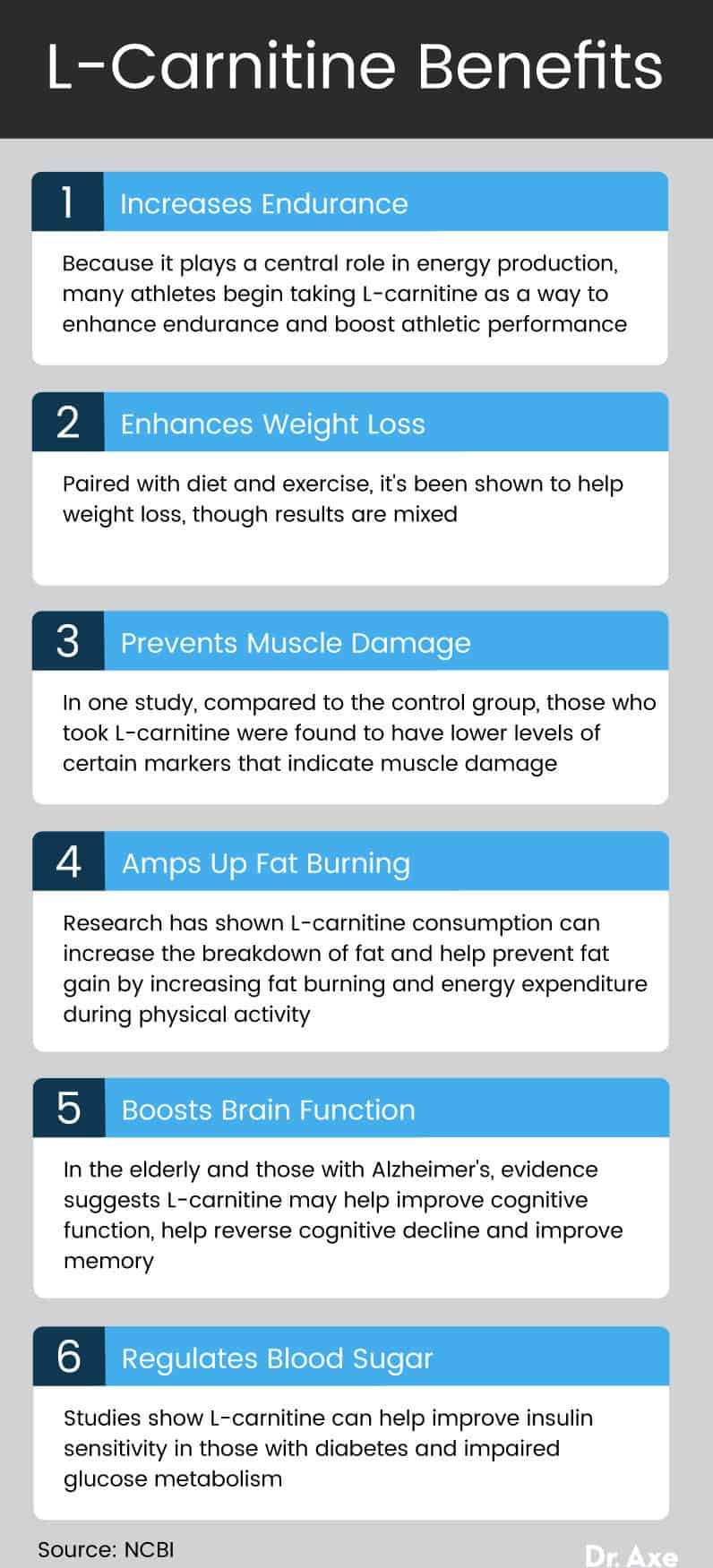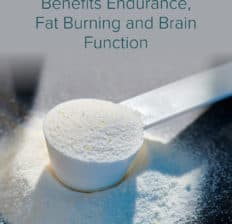This Dr. Axe content is medically reviewed or fact checked to ensure factually accurate information.
With strict editorial sourcing guidelines, we only link to academic research institutions, reputable media sites and, when research is available, medically peer-reviewed studies. Note that the numbers in parentheses (1, 2, etc.) are clickable links to these studies.
The information in our articles is NOT intended to replace a one-on-one relationship with a qualified health care professional and is not intended as medical advice.
This article is based on scientific evidence, written by experts and fact checked by our trained editorial staff. Note that the numbers in parentheses (1, 2, etc.) are clickable links to medically peer-reviewed studies.
Our team includes licensed nutritionists and dietitians, certified health education specialists, as well as certified strength and conditioning specialists, personal trainers and corrective exercise specialists. Our team aims to be not only thorough with its research, but also objective and unbiased.
The information in our articles is NOT intended to replace a one-on-one relationship with a qualified health care professional and is not intended as medical advice.
L-Carnitine Benefits Endurance, Fat Burning and Brain Function
August 4, 2023

Let’s face it: Amino acids are crucial to pretty much every aspect of health. These compounds are the building blocks of proteins, which make up our skin, hair and muscles and perform a variety of functions in the body. When it comes to health, though, some amino acids, like L-carnitine and glycine, stand out from the rest.
Found only in small amounts in certain foods like beef, fish and chicken, it’s safe to say that many of us aren’t getting enough L-carnitine in our diets. Fortunately, it’s also available in capsule, liquid or injection form to help supply a quick and concentrated dose of carnitine.
This superstar supplement has been shown to do everything from enhance athletic performance to bring fat burning to the next level. Here’s what you need to know about this important amino acid and what it can do for you.
What Is L-Carnitine?
Carnitine is a type of amino acid that benefits energy levels by transporting fatty acids into the mitochondria where they can be burned up and used as fuel. For this reason, many take carnitine as a weight loss supplement to help bump up fat burning.
Carnitine occurs in two forms, or isomers: L-carnitine and D-carnitine.
L-carnitine is the active form that plays a role in energy metabolism and production. It is produced within the body, but it can also be taken as a supplement or found in many different protein foods as well.
In supplement form, it’s available as a capsule, liquid or even injectable.
A deficiency in carnitine can be caused by an inadequate intake, excess loss through diarrhea or dialysis, liver disorders, the use of certain medications, and some genetic disorders.
Additionally, because it is primarily found in animal products, vegans and vegetarians are at a higher risk of deficiency.
Although many people take L-carnitine as a way to speed up weight loss and fat-burning, carnitine benefits include enhancing brain function, preventing muscle damage, regulating blood sugar and increasing endurance as well.
Different Types
There are several different forms of carnitine available. Here are a few of the most common types:
- Acetyl-L-carnitine: This type of carnitine is thought to benefit brain health and memory, as shown in animal studies, and has been processed so that it’s able to easily pass the blood-brain barrier.
- D-carnitine: Also known as the inactive form of carnitine, supplementing with this form can actually cause a carnitine deficiency by blocking the absorption of other active forms, according research on rats.
- L-carnitine L-tartrate: This type is often found in sports supplements, thanks to its ability to reduce muscle soreness and boost physical performance.
- Propionyl-L-carnitine: This form helps increase levels of nitric oxide in the body, which dilates the blood vessels to promote better blood flow.
- L-carnitine fumarate: Preliminary research suggests that this type of carnitine could help support bone health to protect against age-related bone loss.
Benefits
1. Increases Endurance
Because L-carnitine plays a central role in energy production, many use it for bodybuilding and athletic performance as a way to enhance endurance and boost energy levels.
In one study out of Turkey published in the Journal of Strength and Conditioning Research, giving professional soccer players three to four grams of L-carnitine before exercise was found to prolong the time it took to reach exhaustion.
Similarly, an animal study out of India published in the journal Wilderness & Environmental Medicine showed that giving rats L-carnitine improved exercise endurance.
For this reason, supplementing with this amino acid may especially benefit endurance athletes, such as long-distance runners, swimmers or cyclists.
2. May Enhance Weight Loss
Many people look to L-carnitine as a way to help shed unwanted pounds and lose weight fast. When combined with diet and exercise, some studies have found that supplementing with it can, in fact, be an effective way to enhance weight loss.
One analysis of research out of Iran looked at the results of nine studies and found that supplementing with carnitine led to a significantly greater amount of weight loss as well as a larger drop in body mass index compared to a control group.
However, L-carnitine weight loss results may vary, and other studies have turned up mixed results.
In a study out of Australia published in the International Journal of Sports Nutrition and Exercise Metabolism, for instance, 36 obese women took either L-carnitine or a placebo and completed eight weeks of aerobic training. At the end of the study, researchers concluded that L-carnitine had no impact on either total body mass or fat mass.
Then, a 2020 systematic review and meta-analysis of 37 randomized, controlled clinical trials found that “l-carnitine supplementation provides a modest reducing effect on body weight, BMI and fat mass, especially among adults with overweight/obesity.”
While L-carnitine may work for some people, it shouldn’t be considered a quick fix. Pair it with regular exercise and a healthy diet to see maximum results.
3. Prevents Muscle Damage
Besides increasing endurance and amping up weight loss, this amino acid also makes a useful supplement for athletes looking to prevent and protect against muscle damage.
In one 2014 study published in the Asian Journal of Sports Medicine, 21 male athletes were given either L-carnitine or a placebo daily for two weeks prior to an athletic test. Compared to the control group, those who took L-carnitine were found to have lower levels of certain markers that indicate muscle damage.
Furthermore, research in 2018 “demonstrated that l-carnitine alleviates muscle injury and reduces markers of cellular damage and free radical formation accompanied by attenuation of muscle soreness,” while a 2020 study revealed that “L-carnitine supplementation ameliorated muscle damage only in resistance training groups and untrained population.”
Updated research in 2023 relayed the following information:
The presented studies analyzed the role of L-carnitine supplementation in muscle bioenergetics and its antioxidant potential in physically active individuals. In this context, L-carnitine supplementation could be an ergogenic aid, helping in muscle damage and recovery, particularly in conditions of L-carnitine deficiency. However, further studies are needed to conclusively clarify the mechanisms underlying these protective effects.

4. Helps Amp Up Fat-Burning
Besides increasing weight loss, this amino acid also helps kick up fat-burning as well.
In one study conducted in Germany, overweight participants received a regular diet, either with or without the addition of L-carnitine. After 10 days, L-carnitine was found to significantly increase the breakdown of fat.
Another study published in the Journal of Physiology showed that increasing the amount of carnitine in the muscles helped prevent fat gain by increasing fat burning and energy expenditure during physical activity.
5. Could Boost Brain Function
L-carnitine isn’t just good for your body — it’s good for your mind as well. In fact, promising research has found that it may positively impact brain function and cognition.
One study conducted by the University of Catania in Italy and published in the American Journal of Clinical Nutrition looked at the effects of daily L-carnitine supplementation on mental and physical fatigue in elderly participants over 100 years old. Not only was it found to reduce total fat mass and increase muscle mass, but it also helped decrease fatigue and improve cognitive function.
Other studies have even found that acetyl-L-carnitine, another form of L-carnitine, could help reverse cognitive decline and improve memory in patients with Alzheimer‘s disease.
A 2020 update did caution, however:
Based on the currently available evidences, the role of ALC [acetyl-L-carnitine] in AD and other cognitive disorders is still under debate. Future multicenter double-blind, randomized, placebo-controlled trials in a large and homogeneous sample of patients should focus on higher doses and more prolonged treatment. Longitudinal studies with multidimensional assessments and a wide range of outcome measures are also needed before a systematic application of ALC in clinical practice.
6. Regulates Blood Sugar
Some promising research has shown that carnitine supplementation could aid in maintaining normal blood sugar levels and fighting insulin resistance.
Insulin is the hormone responsible for transporting sugar from the bloodstream to the cells, where it can be used as fuel. Too much insulin can lead to insulin resistance, decreasing its effectiveness and resulting in high blood sugar.
A study out of Rome published in the Journal of the American College of Nutrition showed that infusing people who had diabetes with L-carnitine improved insulin sensitivity and increased the uptake of sugar from the bloodstream.
Another small study in 2010 conducted at Sapienza University’s Department of Clinical Medicine in Rome found that combining L-carnitine with caloric restriction helped reduce insulin resistance and increase sensitivity.
Risks and Side Effects
When used as directed, carnitine can be safe and effective with minimal risk of side effects. Common L-carnitine side effects that may occur for some include stomach pain, nausea, vomiting and diarrhea.
L-carnitine may increase the risk of seizures in those with epilepsy. If you’ve had a seizure before, you should not take carnitine.
Additionally, carnitine may worsen symptoms of hypothyroidism. If you have an underactive thyroid, you should consult with your doctor before taking this amino acid.
When starting carnitine, as with any supplement, it’s best to start with a low dose and increase slowly to assess tolerance. If you experience any negative side effects, be sure to report to your doctor to determine if supplementation is right for you.
Finally, keep in mind that carnitine may enhance fat loss and weight loss for some people, but it should be used in combination with a healthy diet and active lifestyle to see the most results.
Food Sources
Animal products are the best natural sources of L-carnitine, with foods like grass-fed beef packing in the highest amount per serving. It can also be found in small amounts in some sources like vegetables and grains.
Here are the foods that contain the most L-carnitine per serving, according to the National Institutes of Health:
- Beef steak, cooked, 3 ounces: 42–122 milligrams
- Ground beef, cooked, 3 ounces: 65–74 milligrams
- Whole milk, 1 cup: 8 milligrams
- Codfish, cooked, 3 ounces: 3–5 milligrams
- Chicken breast, cooked, 3 ounces: 2–4 milligrams
- Ice cream, 1/2 cup: 3 milligrams
- Cheddar cheese, 2 ounces: 2 milligrams
- Whole wheat bread, 2 slices: 0.2 milligram
- Asparagus, cooked, 1/2 cup: 0.1 milligram

Supplements and Dosage
Although carnitine can be found naturally in plenty of food sources, it’s also available in supplement form as well.
The first step is deciding what form to use and when to take your supplement. It can be found in L-carnitine liquid, capsule and injectable forms for a quick and convenient way to boost your carnitine levels.
For oral L-carnitine, be sure to take it with meals to maximize its effectiveness.
The standard L-carnitine dosage is 500–2,000 milligrams daily. Based on most current research available, a dose of up to two grams per day can be used safely and effectively with minimal side effects.
The dosage may vary by the type of L-carnitine supplement, however. Acetyl-L-carnitine, for example, can be used in doses up to 2,500 milligrams per day while the dose for L-carnitine L-tartrate, a form typically used to enhance athletic performance, can range all the way up to 4,000 milligrams.
Keep in mind that when adding any supplement into your routine, you should always start with a low dose and work your way up to ensure you’re able to tolerate it without adverse side effects.
Related: L-Glutamine Benefits Leaky Gut & Metabolism
Uses and Recipes
Most people use L-carnitine to help boost weight loss and increase fat burning. However, there are many other potential reasons you may want to add carnitine into your diet.
It can help correct deficiencies, boost brain function, prevent muscle damage, increase endurance and enhance athletic performance.
It can also be incredibly useful for vegans and vegetarians who may have a limited intake of carnitine-rich foods. Taking a supplement can be an easy way to help meet your needs for this crucial amino acid.
If you’re looking for some ways to increase your carnitine intake without the use of a supplement, including a few servings of carnitine-rich foods can help. Here are some recipes that are high in carnitine for you to try out:
Final Thoughts
- What is L-carnitine? Carnitine is an amino acid that works by transporting fatty acids to the mitochondria where they can be broken down into fuel.
- This amino acid is produced in the body and is also found in small amounts in certain types of food, like animal products.
- Although safe in moderation, potential carnitine side effects include stomach pain, nausea, vomiting and diarrhea.
- When paired with a healthy lifestyle and nutritious diet, taking carnitine could offer a variety of health benefits.
- In fact, studies show that L-carnitine helps benefit endurance, enhance weight loss, prevent muscle damage, amp up fat-burning, boost brain function and regulate blood sugar.


